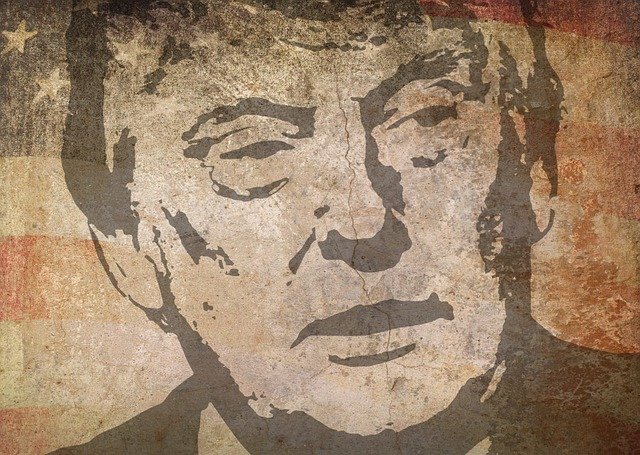SCOTUS Stops Disclosure of Donald Trump’s Financial Records

The U.S. Supreme Court has granted President Donald Trump’s request for a stay in Trump v. Mazars USA, LLP. The Court’s order halts the enforcement of a Congressional subpoena seeking the President’s financial records pending resolution of his forthcoming petition for certiorari.
Facts of Trump v. Mazars USA, LLP
The House Committee on Oversight and Reform issueda subpoena to Mazars USA, LLP, President Trump’s long-time accountant, seeking financial documents concerning the President and his companies covering years both before and during his presidency. According to the Committee, the documents will inform its investigation into whether Congress should amend or supplement current ethics-in-government laws. Meanwhile, the President contends that the Committee’s investigation into his financial records serves no legitimate legislative purpose.
President Trump filed suit to prevent Mazars from complying with the subpoena. The district court granted enforcement of the Committee’s subpoena. The Trump Applicants appealed to the Federal Court of Appeals to the D.C. Circuit, and the Committee agreed to a stay pending appeal, in exchange for an expedited briefing and argument schedule, which was granted.
The D.C. Circuit upheld the validity of the Committee’s subpoena. “Contrary to the President’s arguments, the Committee possesses authority under both the House Rules and the Constitution to issue the subpoena, and Mazars must comply,” the court held. In reaching its decision, the appeals court concluded that in issuing the challenged subpoena, the Committee was engaged in a “legitimate legislative investigation,” rather than an impermissible law-enforcement inquiry. It further found that the legislative investigation concerned a subject “on which legislation could be had.”
Supreme Court Blocks Enforcement
With the D.C. Circuit’s mandate scheduled to issue on November 20, 2019, President Trump filed an application for stay pending certiorari. The President argued that he should be allowed to petition for review of an “unprecedented demand for his personal papers.” He also argued that because the House Oversight Committee planned to enforce the subpoena when the D.C. Circuit’s mandate issued, the “Court will not have the opportunity to decide for itself whether the decision warrants review unless a stay pending certiorari is granted.”
In response, the House argued that Court intervention was unnecessary. “There is no need for this Court to make definitive pronouncements on the scope of Congress’s powers in a case in which its ruling will be so limited in application and consequence.” Allowing the president to “stall any Congressional subpoena to which he objects through the months or years that it takes for a challenge” to wind its way through the courts would “radically” impair the ability of the House of Representatives – which operates in two-year terms – to “conduct oversight or to collect information about the Executive Branch.”
On November 25, the Court granted a stay, which halts the Federal Circuit decision and allows President Trump to file an appeal with the Court. Its order in Trump v. Mazars USA, LLP states:
The application for stay of the mandate presented to The Chief Justice and by him referred to the Court is granted. The issuance of the mandate of the United States Court of Appeals for the District of Columbia Circuit, case No. 19-5142, is stayed pending the filing and disposition of a petition for a writ of certiorari, if such petition is filed on or before December 5, 2019, by noon. Should the petition for a writ of certiorari be denied, this stay shall terminate automatically. In the event the petition for a writ of certiorari is granted, the stay shall terminate upon the issuance of the judgment of this Court. If no petition for a writ of certiorari is filed on or before December 5, 2019, by noon, the stay shall terminate. If the Court agrees to hear the case, oral arguments would take place in the new year, with a decision by the end of the term in June.
Previous Articles
SCOTUS Decision in Bowe v. United States Is First of the 2026 Term
by DONALD SCARINCI on February 5, 2026
In Bowe v. United States, 607 U.S. ___ (2026), the U.S. Supreme Court held that Title 28 U.S.C. § ...
SCOTUS Rules State Can’t Immunize Parties from Federal Civil Liability
by DONALD SCARINCI on January 29, 2026
In John Doe v. Dynamic Physical Therapy, LLC, 607 U.S. ____ (2025) the U.S. Supreme Court held that...
Supreme Court to Address Racial Discrimination in Jury Selection
by DONALD SCARINCI onWhile the U.S. Supreme Court has concluded oral arguments for the year, it continues to add cases t...
The Amendments
-
Amendment1
- Establishment ClauseFree Exercise Clause
- Freedom of Speech
- Freedoms of Press
- Freedom of Assembly, and Petitition
-
Amendment2
- The Right to Bear Arms
-
Amendment4
- Unreasonable Searches and Seizures
-
Amendment5
- Due Process
- Eminent Domain
- Rights of Criminal Defendants
Preamble to the Bill of Rights
Congress of the United States begun and held at the City of New-York, on Wednesday the fourth of March, one thousand seven hundred and eighty nine.
THE Conventions of a number of the States, having at the time of their adopting the Constitution, expressed a desire, in order to prevent misconstruction or abuse of its powers, that further declaratory and restrictive clauses should be added: And as extending the ground of public confidence in the Government, will best ensure the beneficent ends of its institution.





